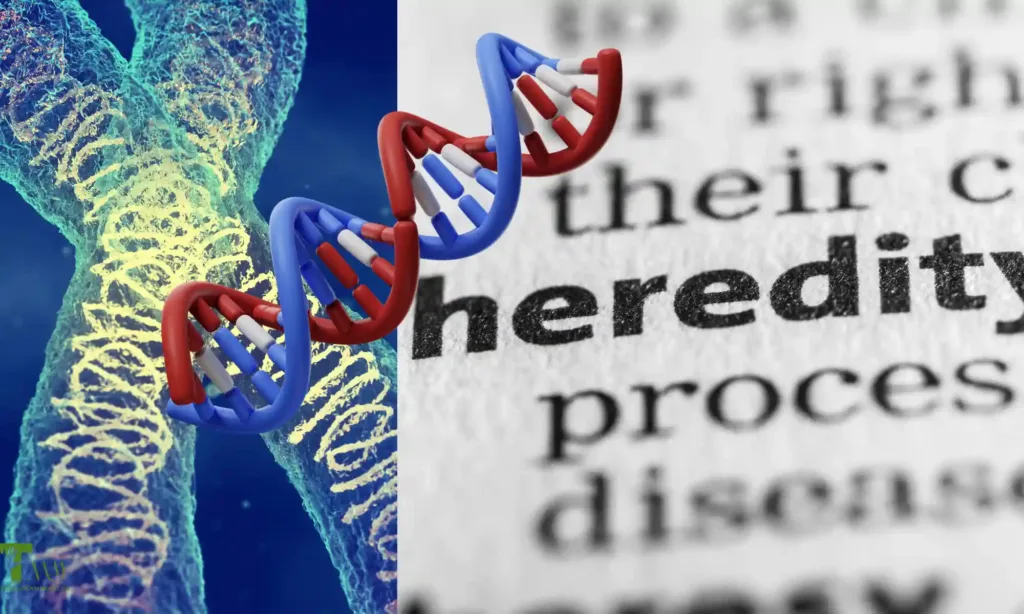In today’s article, we will explore the fascinating connection between heredity and personal health. Understanding how our genes and genetic makeup influence our well-being can provide valuable insights into maintaining a healthy lifestyle. Join us as we delve into the intricate relationship between heredity and personal health and discover how you can take control of your well-being.
I. Introduction
Maintaining good health is a priority for individuals worldwide. We all strive to lead fulfilling lives, free from the burden of illnesses and diseases. While personal choices and environmental factors undoubtedly play significant roles in shaping our health, it is essential to acknowledge the impact of heredity as well.
II. Understanding Heredity
A. Definition of Heredity
Heredity refers to the passing of traits and characteristics from one generation to another through genetic information encoded in our DNA. It encompasses the transfer of genetic material, such as genes and alleles, from parents to their offspring.
B. Genetic Inheritance
Genetic inheritance occurs when specific traits or characteristics are transmitted from biological parents to their children. These traits can include physical features, susceptibility to certain diseases, and even behavioral tendencies. The inheritance pattern follows a complex interplay of dominant and recessive genes.
C. Role of DNA
DNA, also known as deoxyribonucleic acid, serves as the genetic information carrier within every living organism. It consists of a unique sequence of nucleotides that encode instructions for the development, functioning, and reproduction of living beings. DNA plays a fundamental role in determining our genetic makeup and can influence various aspects of our health.
III. Personal Health and Genetic Factors
A. Genetic Predispositions
Certain genetic variations can increase an individual’s susceptibility to specific health conditions. These genetic predispositions, such as gene mutations or variations, can make some individuals more vulnerable to diseases like diabetes, cancer, or heart conditions. Understanding these predispositions allows for proactive measures to manage and mitigate potential health risks.
B. Impact of Genes on Health
Genes not only influence the likelihood of developing certain diseases but can also affect how our bodies respond to treatments. Genetic factors can influence medication efficacy, potential side effects, and overall treatment outcomes. Personalized medicine is an emerging field that aims to tailor treatments based on an individual’s genetic profile to optimize health outcomes.
IV. Lifestyle and Health
A. The Influence of Environment
While genes provide a blueprint for our health, environmental factors significantly shape our well-being. Factors such as diet, physical activity, exposure to toxins, and stress levels can interact with our genetic makeup and influence our overall health. Understanding gene-environment interactions is crucial in comprehending the complex interplay between heredity and personal health.
B. Lifestyle Choices
Personal choices regarding diet, exercise, sleep, and stress management play a vital role in maintaining good health. Even individuals with genetic predispositions can significantly reduce their risks by adopting healthy lifestyle practices. Proper nutrition, regular physical activity, and adequate rest can positively impact our well-being and counteract potential genetic susceptibilities.
V. Gene-Environment Interaction
The relationship between genes and the environment is not unidirectional. It is a dynamic interplay where genetic factors can influence how individuals respond to environmental stimuli, and the environment can, in turn, impact gene expression. Understanding this interaction sheds light on the intricate connection between heredity and personal health.
VI. Epigenetics and Health
Epigenetics is a field of study that explores how external factors can modify gene expression without changing the underlying DNA sequence. Environmental factors, such as diet, stress, and exposure to toxins, can trigger epigenetic changes that influence health outcomes. These modifications can be reversible and provide opportunities for interventions to promote better health.
VII. Taking Control of Your Health
Although we inherit certain genetic factors, it is essential to remember that our well-being is not solely predetermined by our genes. Empowering ourselves with knowledge about our genetic predispositions allows us to make informed decisions and take proactive steps towards maintaining good health. Regular check-ups, preventive screenings, and engaging in healthy habits contribute to a holistic approach to well-being.
Conclusion
In conclusion, heredity and personal health are intricately linked. Our genetic makeup can predispose us to certain health conditions, but lifestyle choices and environmental factors also play significant roles in determining our well-being. By understanding the interplay between genetics, environment, and personal choices, we can take control of our health and make informed decisions to lead fulfilling and healthy lives.
FAQs
- Can I change my genetic predispositions? While you cannot change your genes, you can modify their impact through healthy lifestyle choices and proactive healthcare measures.
- Are all diseases influenced by genetics? No, not all diseases are solely influenced by genetics. Environmental factors and lifestyle choices also play significant roles in disease development.
- Can genetic testing help determine my health risks? Genetic testing can provide insights into your genetic predispositions, allowing you to understand potential health risks and take preventive measures accordingly.
- Is it necessary to consider heredity when making healthcare decisions? Considering heredity is crucial in making informed healthcare decisions. Understanding your genetic predispositions can guide personalized treatment plans and preventive measures.
- How can epigenetics impact health outcomes? Epigenetic modifications can influence gene expression and impact health outcomes. Certain environmental factors can trigger positive or negative changes, highlighting the importance of a healthy lifestyle.

